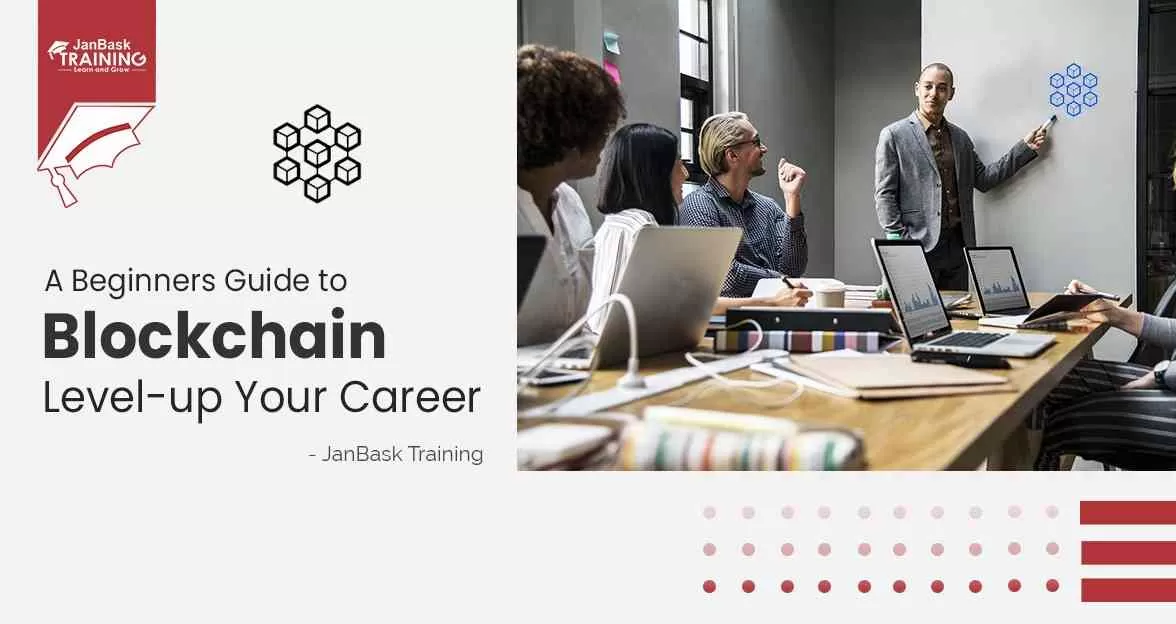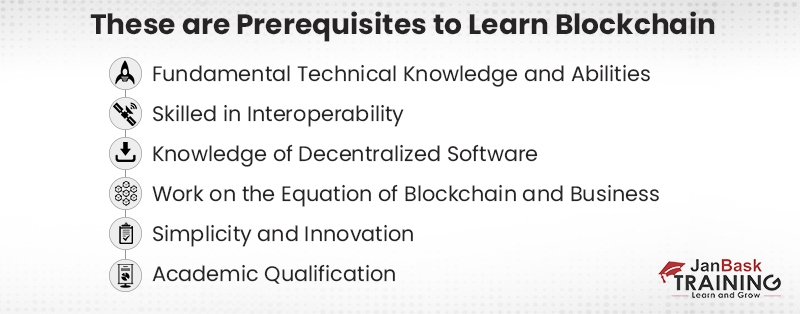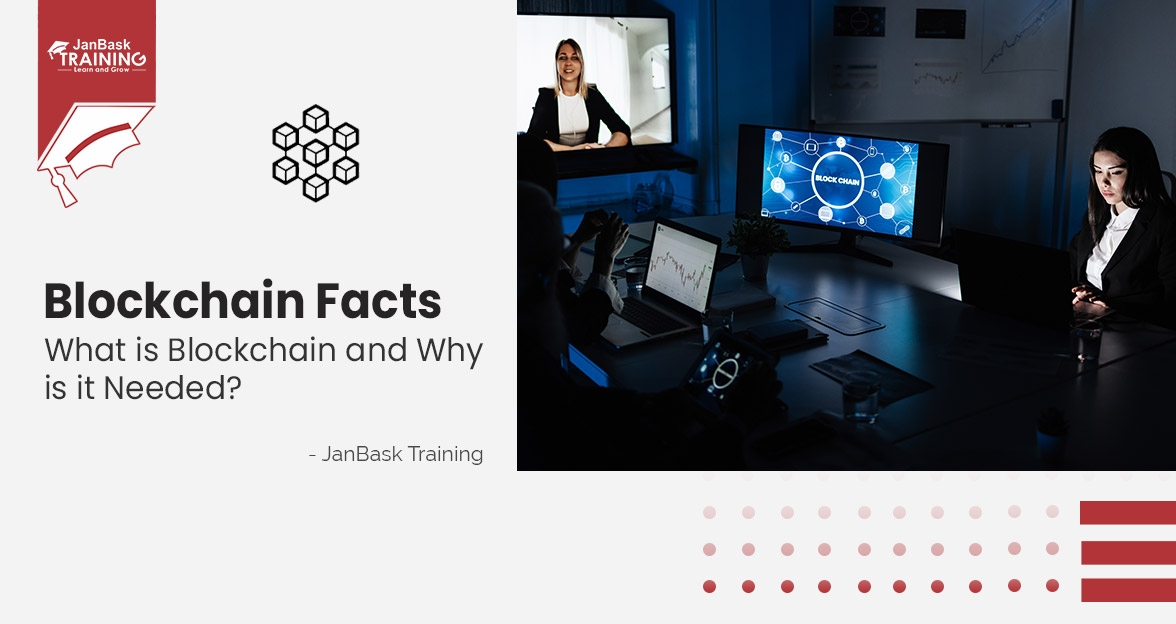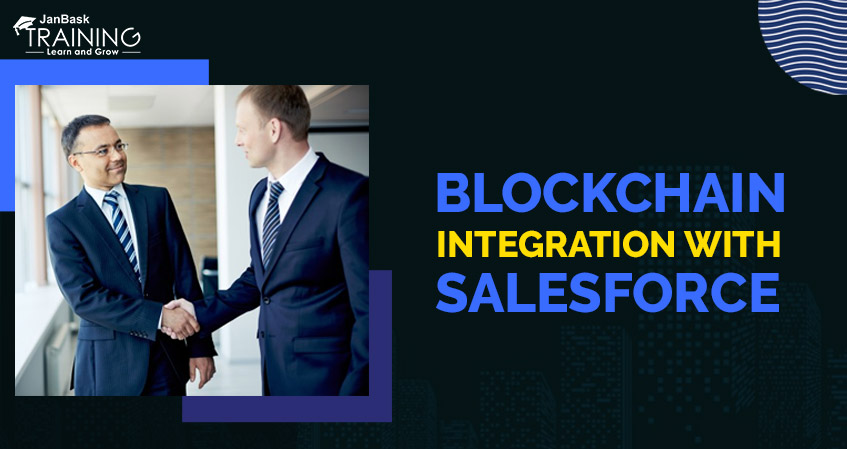Introduction
The global blockchain market will reach USD 39.7 billion by 2025!
How! the answer to the question lies in the revolution of Blockchain.
Blockchain technology holds power to change how the industry works and keep track of transactions and records. Initially, blockchain was introduced as a platform for Bitcoin. But, it exhibited a level of adaptability and security that led various businesses and governments to take notice and use it. This gave rise to the soaring demand for blockchain developers in the market.
According to a survey provided by LinkedIn, blockchain is at the top of the list of rising careers. So, if you are willing to be a part of this industrial revolution, grab this opportunity; consider enrolling in a professional Blockchain Certification Course and make a successful career.
To further boost your career in Blockchain, this article will tell you about –
- Basics of blockchain and blockchain development.
- Prerequisites to learn blockchain.
- Responsibilities of a blockchain developer.
- How to make a career in blockchain.
Prerequisites to Learn Blockchain and Begin Your Journey

1. Fundamental Technical Knowledge and Abilities
To become a blockchain developer, one needs to have specific essential skills; in the same way, there are specific prerequisites for learning blockchain technology. A person should be well-versed in computer science, information security, and information technology. He also needs a solid understanding of distributed systems, networking, cryptography, and data structures.
- Distributed systems and Networking: A person should know how the network and distributed system work because blockchain is a distributed ledger that operates over it. Having a solid understanding of how peer-to-peer networks use; it is one of the major prerequisites to learning blockchain. It aids in laying a solid basis for the computer network, including network topologies and routing.
- Cryptography: Cryptography is a crucial component of blockchain technology, and one must have prerequisites to learn blockchain. It aids in safeguarding the data from any illegal access for the blockchain developer. The key-encryption mechanism and another step, hashing, are used to carry this forward. The purpose of cryptography is to shield data from unauthorized access.
- Elementary Data Structures: Before learning about the complexity of blockchain technology, one should have a fundamental understanding of data structures, one of the prerequisites for learning blockchain technology. An aspiring blockchain developer should be familiar with the operation of many data structures, including linked lists, graphs, hash maps, search trees, and more. For a blockchain developer, the ability to create a data structure from scratch is equally crucial.
- A Good Understanding of Cryptonomic: A combination of cryptocurrency and economics is called cryptonomic. The value of other currencies and numerous monetary policies impact cryptocurrencies. Understanding cryptonomics becomes crucial for learning blockchain. The idea of cryptonomics is a novel invention since it eliminates the need for a third party to receive money. Cryptonomic eliminates the intermediaries, resulting in greater decentralization of the systems for managing funds, investments, and money.
- Smart Contracts: The applications that assist in automating transactions are known as smart contracts. Without using intermediaries or attorneys to complete the transaction, it helps increase the potential of blockchain. A developer needs to be fully informed of all potential ways to carry out an intelligent contract; it is one of the main prerequisites to learning blockchain.
2. Skilled in Interoperability
Students who want to work in blockchain technology need to be able to switch between multiple technologies with ease. One of the critical prerequisites to learning blockchain and a crucial necessity for learning blockchain is interoperability.
Candidates may need to use various technology platforms working with interconnected ledgers in professional blockchain employment responsibilities. Professionals working with blockchain must also compare and assess the advantages and disadvantages of integrating them with current company systems. Knowledge of how to integrate blockchain with Salesforce is a bonus point here.
3. Decentralized Software
Blockchains form the foundation for many decentralized apps (DApp). Here are some examples:
- Hyperledger – Hyperledger's major objective is to develop technology for the Blockchain that spans industries. It makes it easier to create the infrastructure, ecosystem, and other components necessary for a successful blockchain system, among other things.
- EOS – The Electro-Optical System, or EOS, promises to serve large-scale industrial applications. This blockchain-based platform makes constructing, creating, or running business apps easier. EOS offers DApps between each other secure and authorized access.
- NEO – NEO is used as a digital and physical asset that is tokenized during the transfer on the blockchain. It promotes security and transparency for digital assets.
- Ethereum – Ethereum offers tokens that may be used on the blockchain technology platform to construct digital and secure technologies. It makes it possible to use safe decentralized functionalities. It is one of the explanations why blockchain engineers use Ethereum.
4. Decentralization
Decentralization is one of the most important prerequisites to learning blockchain. Candidates must be at least somewhat familiar with its structure. For understanding the decentralized design of blockchain, students might start with the peer-to-peer network model.
5. Ability to Work on the Equation of Blockchain and Business
The list of prerequisites to learn blockchain also includes an understanding of the business aspects of blockchain. It would help if you had a firm grasp of blockchain technology's potential business benefits. Candidates might also strive to determine the many prospects that exist for utilizing blockchain to enhance their solutions. Candidates should also develop the abilities necessary for working in an enterprise environment daily at the same time.
6. Simplicity and Innovation
Blockchain experts need to learn how to streamline processes to solve particular problems. Here, going through a Blockchain Tutorial Guide might help you. Candidates must have a fundamental understanding of the design thinking technique because it will aid in identifying solutions for various blockchain use cases.
7. Academic Qualification
Although formal academic training is not a must-have prerequisite to learning blockchain, it can be quite beneficial. An undergraduate degree in computer science, mathematics, or information technology might provide the proper intellectual framework for learning about blockchain technology.
A Quick Overview of Blockchain & Blockchain Development
A blockchain is a database used to store and organize information. Traditionally, databases have organized data into tables, which are made up of rows and columns. Blockchain makes the data simple for computers to understand. Contrarily, with blockchains, data is digitally formatted and gathered into clusters or blocks. Each block has a finite amount of storage.
Blockchain development is building, maintaining, and creating blockchain systems and applications. In general, it aims to utilize the unique qualities of Blockchain Technology to address issues and open up opportunities. The smart contract is one instance of a new blockchain invention. Like conventional contracts, smart contracts are written agreements between two parties.
You should now be familiar with the fundamentals of blockchain and blockchain development. Let's now delve further to discover the prerequisites to learning blockchain.
Responsibilities of a Blockchain Developer
A software developer that specializes in blockchain technology is known as a blockchain developer. Software and system developers plan, create and test their work. The two main categories of blockchain developers are:
- Core Blockchain Developer: The architecture of blockchain systems is created and maintained by core blockchain developers. They create security patterns, build protocols, and manage the entire network.
- Blockchain Software Developer: On top of already-existing blockchain systems, blockchain software developers create applications. They take care of development, design, and maintenance for the front-end and back-end.
Why is Blockchain Developer Considered a Shining Career Option?
According to the US Bureau of Labor Statistics (BLS) report, the number of jobs in software development will increase by 2029
How to Make a Career in Blockchain
Do you wish to embark on a brand-new exciting career in blockchain technology? Blockchain is a ground-breaking technology widely recognized as the foundation of digital coins that have been the subject of great excitement over the past ten years. Here is a Blockchain Career Path to help you understand the process –

Understand the Basics
Blockchain is a brand-new technology, in contrast to other options. Its distinct value proposition is an essential component of a blockchain education. Thus you must understand it. Decentralization, intelligent contracts, and Dapps are not simply innovative features. They are the core of the blockchain, and understanding them will help you advance in the field. Finding the core principles that are guiding this worldwide phenomenon is the best way to study blockchain.
Polish Your Skill Set
Since blockchain is a complicated idea, the following are some skills you should at least have a passing familiarity with if you wish to advance in this field:
- Programming (especially Java, Solidity, C+, Python, and JavaScript)
- Data structures and architecture
- Cryptography
- Cybersecurity
You don’t have to be a master in the above skills, but it helps to understand blockchain.
Join a Training Program
Online training programs range from beginner to advanced levels. You might consider enrolling in a reputable Institute like JanBask Training. To help you become industry-ready, JanBask Training provides extensive online blockchain training programs that are by industry expectations.
Conclusion
As of 2025, the blockchain job market continues to expand, albeit at a more moderate pace. The sector is experiencing a compound annual growth rate (CAGR) of 45%, adding approximately 20,000 new jobs in 2024. This growth, while substantial, lags behind the AI sector's 57% CAGR
As we all move toward the year 2026, we will see a lot more growth in the blockchain industry. Numerous giant brands, including Facebook, Twitter, and Tesla, are switching to this digital solution, but there is still plenty to learn about.
Do you also wish to be part of this progress as well? Start learning blockchain technology by taking a Blockchain Certification Course and give your career the much-needed boost.
Frequently Asked Questions
Q1. Define blockchain development.
Ans: Building, maintaining, and creating blockchain applications and systems can all be referred to as blockchain development. Overall, it makes use of the distinctive qualities of blockchain technology to solve issues and open doors.
Q2. What does a blockchain developer do?
Ans: A software developer that specializes in blockchain technology is a blockchain developer. Software and system developers plan, create and test their work. The two main categories of blockchain developers are:
- Core blockchain developer
- Blockchain software developer
Q3. What is decentralization?
Ans: Decentralization is the division of power among a blockchain network's nodes. Decentralization's main objective is to make the blockchain network more functional by doing away with the necessity for a central authority.
Q4. How tough is it to learn blockchain development?
Ans: The process of developing a blockchain is similar to creating any other skill. Understanding the principles of blockchain technology should make it simpler for you to picture how more sophisticated notions fit into the picture. Joining JanBask Training Community can make your learning even easier
Q5. Is Blockchain a promising career in 2025?
Ans: The demand for blockchain-savvy professionals is rapidly going high. Blockchain-focused careers related to development, cybersecurity, and project management offer excellent earning potential and promising job prospects. With so many advantages, no doubt blockchain is a great career option presently, and a lot of people want to know the blockchain technology prerequisites to learn.
Q7. Without a degree, is it possible to become a blockchain developer?
Ans: Without having a degree in computer science or information security, you can start a career as a blockchain developer. A degree offers you the edge over the competition and the skills required for entry-level work.
Q8. What prior skills or prerequisites to learn blockchain technology?
Ans: Aspiring blockchain professionals who want to learn blockchain technology, they should be knowledgeable in both general subjects like cybersecurity and web development as well as blockchain-specific ones like encryption, smart contracts, and intricate data structures.
Q9. What are the prerequisites to learn blockchain?
Ans: Blockchain technology prerequisites to learn to include a solid understanding of computer science, information technology, and information security. The knowledge of distributed systems, networking, cryptography, and data structures is essential for aspiring blockchain developers.
Q10. Is coding included in the prerequisites to learn blockchain technology?
Ans: Java, C++, Python and JavaScrip are some common languages used for blockchain. You need to have a strong foundation in object-oriented programming and be familiar with an assortment of development libraries and frameworks.
Trending Courses
Cyber Security
- Introduction to cybersecurity
- Cryptography and Secure Communication
- Cloud Computing Architectural Framework
- Security Architectures and Models
Upcoming Class
2 days 16 Jan 2026
QA
- Introduction and Software Testing
- Software Test Life Cycle
- Automation Testing and API Testing
- Selenium framework development using Testing
Upcoming Class
2 days 16 Jan 2026
Salesforce
- Salesforce Configuration Introduction
- Security & Automation Process
- Sales & Service Cloud
- Apex Programming, SOQL & SOSL
Upcoming Class
2 days 16 Jan 2026
Business Analyst
- BA & Stakeholders Overview
- BPMN, Requirement Elicitation
- BA Tools & Design Documents
- Enterprise Analysis, Agile & Scrum
Upcoming Class
9 days 23 Jan 2026
MS SQL Server
- Introduction & Database Query
- Programming, Indexes & System Functions
- SSIS Package Development Procedures
- SSRS Report Design
Upcoming Class
3 days 17 Jan 2026
Data Science
- Data Science Introduction
- Hadoop and Spark Overview
- Python & Intro to R Programming
- Machine Learning
Upcoming Class
2 days 16 Jan 2026
DevOps
- Intro to DevOps
- GIT and Maven
- Jenkins & Ansible
- Docker and Cloud Computing
Upcoming Class
-1 day 13 Jan 2026
Hadoop
- Architecture, HDFS & MapReduce
- Unix Shell & Apache Pig Installation
- HIVE Installation & User-Defined Functions
- SQOOP & Hbase Installation
Upcoming Class
2 days 16 Jan 2026
Python
- Features of Python
- Python Editors and IDEs
- Data types and Variables
- Python File Operation
Upcoming Class
10 days 24 Jan 2026
Artificial Intelligence
- Components of AI
- Categories of Machine Learning
- Recurrent Neural Networks
- Recurrent Neural Networks
Upcoming Class
0 day 14 Jan 2026
Machine Learning
- Introduction to Machine Learning & Python
- Machine Learning: Supervised Learning
- Machine Learning: Unsupervised Learning
Upcoming Class
37 days 20 Feb 2026
Tableau
- Introduction to Tableau Desktop
- Data Transformation Methods
- Configuring tableau server
- Integration with R & Hadoop
Upcoming Class
2 days 16 Jan 2026
























